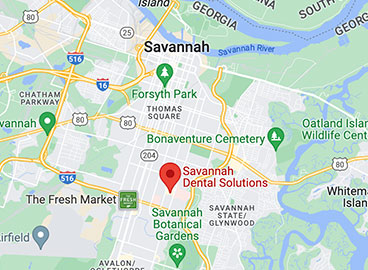TMJ, is commonly known as severe jaw pain. TMJ stands for the Temporomandibular Joint, which is the place where the jaw attaches to the skull. It works somewhat like a hinge that allows your jaw to move up and down.

When you experience pain or limited range of motion in this joint, the condition is referred to as TMD, which stands for Temporomandibular Disorder. The good news is the TMJ/TMD is curable. What is the best treatment for TMJ? There are a range of different treatments that can help relieve pain and increase range of motion in the jaw.
Treatments You Can Try at Home
When you experience pain in your jaw, the first step is to try some home remedies to see if you can relieve the pain without a dentist’s intervention. Here are some ideas to try:
- – Apply ice. Applying ice to any type of injury can help to relieve pain, reduce swelling, and accelerate healing. Ice can help the jaw in the same way. Apply ice to one or both of your jaw joints a few times a day.
- – Eat soft foods. Jaw pain can be exacerbated by a lot of chewing or biting on hard or chewy foods. Eat soft foods that will allow your jaw to rest and avoid chewing gum.
- – Relax your jaw. This can be easier said than done. If you hold tension in your jaw when you feel stress, it can make TMJ/TMD worse. Try to make a concentrated effort to relax your jaw periodically during the day. You can try holding a pen or pencil gently across your mouth with your lips tucked in around your teeth. It causes a natural relaxation of the jaw as long as you don’t bite down.
- – Take a pain reliever. Over-the-counter pain relievers can help with the pain. Anti-inflammatory pain relievers can also reduce any inflammation in the jaw joint that could be causing the pain.
Sometimes these methods will help jaw pain go away on its own. But if not, it would be best to call your dentist.
Treatments Your Dentist May Recommend
When your pain persists after attempting to relieve it at home, you may need some professional intervention. What is the best treatment for TMJ according to a dentist? A dentist may recommend any of the following:
- – Mouth guard/oral splint. Wearing a mouth guard, like the type worn to prevent teeth grinding, can help to relieve TMJ/TMD pain. A buffer between the teeth absorbs some of the impact of teeth grinding or jaw clenching, taking the pressure off the joint and allowing it to heal.
- – Physical therapy. When you think of physical therapy, you probably think of treatment for a knee or shoulder injury. But the jaw is a joint, similar to the other joints in your body. It can respond to physical therapy in much the same way, getting stronger and improving range of motion.
- – Injections. Pain can be relieved through injections of medication into the joint. There are a variety of medications that may be injected from pain relievers to corticosteroids.
- – Surgery. In some cases, severe TMJ/TMD can require surgical procedures to correct. Surgery can be done to reconstruct the joint or release a locked jaw.
Surgical procedures would be the last resort if no other type of treatment has been effective at relieving pain or restoring range of motion in the jaw. In most cases, jaw surgery is minimally invasive and considered to be a minor procedure.
Experiencing TMJ Symptoms? Contact Savannah Dental Solutions
If you are experiencing pain in your jaw or limited range of motion, Savannah Dental Solutions can help. TMJ/TMD can be painful, but it is treatable. The best treatment for TMJ is not necessarily the same for everyone. Based on your symptoms and your personal experience with jaw pain, we will find the treatment option for you and put a stop to your pain at the source.
Call (912) 354-1366 or contact us today to schedule an appointment at Savannah Dental Solutions. We look forward to helping you find the best way to relieve your TMJ symptoms.


